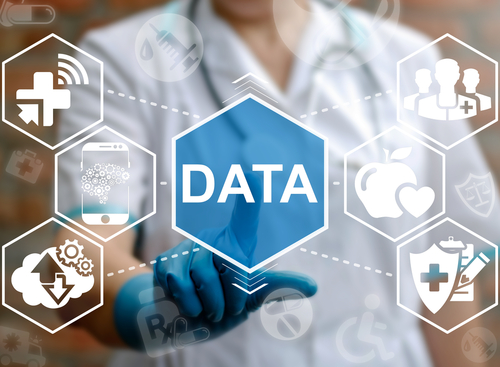In this contributed article, freelance human Avery Phillips believes healthcare providers need patients to trust them. Without patients, a clinic, hospital, or practice can’t continue operating as a successful business. The fear of having one’s data put at risk can make it difficult for patients to provide their personal information or discuss health issues. Healthcare professionals should make it clear to patients that their information will be kept confidential. The guidelines below can put patients’ minds at ease.
How Big Data Helps Vaccines Improve
In this contributed article, freelance human Avery Phillips believes that the possibilities with big data and vaccinology are endless. Lists could be automatically generated to identify under-vaccinated populations, determining what vaccines are overdue, and giving reminders to doctors and the public. Systems such as these might be the best use of big data in the quest of delivering holistic and safe health to people around the globe.
How Big Data is Helping Monitor STD Rates and Get People Tested
In this contributed article, freelance human Avery Phillips discusses the importance of tracking data around infection rates, geographical location, and patient demographics for the continued treatment of STDs. This not only helps us understand how changes in communication will need to be made but also what populations need to be informed so that they can better understand their treatment. Managing big data like this and finding ways to implement it is where tech companies can step in to help with current STD rates and treatments.
What’s Next? Learning Communities in AI and Healthcare
Artificial intelligence is making a difference to healthcare, right now. For more information on how to get involved in this important and growing sector, take advantage of the resources outlined in this post, including the Dell EMC Machine Learning Knowledge Center, Dell EMC Customer Solution Centers and the Deep Learning Institute by Dell EMC. These have been created for the purpose of sharing expertise and offering guidance for those interested in deep learning.
Finding a solution for AI in Healthcare
Dell EMC Ready Solutions for AI are integrated systems with validated hardware and software stacks optimized to accelerate AI initiatives, shortening the time to architect a new solution by six to twelve months. A new insideBIGDATA special report series explores the intersection of AI and medicine, and this entry provides a series of solutions for AI in healthcare, including Dell EMC Ready Solutions for AI.
AI in Medicine: Developments in Radiology, Genomics & Diagnostics
Next-generation radiology tools may remove the need for tissue sampling and greatly expand the area of delivery. And the translational Genomics Research Institute’s (TGen) Center for Rare Childhood Disorders is using machine learning for genetic sequencing. Part of an insideBIGDATA special report series on AI and healthcare, this entry highlights some of the latest developments in AI in medicine, including progress in radiology, genomics and diagnostics.
Impressive Healthcare AI results for Vision Research & Cancer Treatment
This post explores the latest research and AI innovation in vision research and cancer treatment. Learn more about CSIRO’s bionic vision research, powered by the Dell EMC PowerEdge servers. And find out how Gustave Roussy, a leading European center for cancer treatment, sought to increase the processing capabilities of its bioinformatics platform to support more genome analyses per day while enhancing research programs, via a new insideBIGDATA special report.
Exploring the Application of AI Within Healthcare
AI is already having a profound impact on patient care. Machine learning and deep learning build the fundamentals to an AI system, and by taking a holistic approach to the data being generated within healthcare, AI-enabled systems can help to assess risk and facilitate improved human decision making. This insideBIGDATA special report article delves into the application of AI within healthcare, as well as the impact and challenges of these new tools.
Medical Device Security: Ensuring Data Integrity
In this contributed article, technology writer and blogger Kayla Matthews suggests that one of the best ways to make healthcare smarter, more accurate and more engaging is by gathering data on a huge scale and then using it to gather insights into individual patient conditions as well as the effectiveness of treatments over a much broader scale.
The Future of EHRs, Big Data, and Patient Privacy
In this contributed article, freelance human Avery Phillips suggests that the volume and quality of patients records being transferred online is awesome in the original sense of the word. However, it also presents an ever-growing security risk, and standards will need to be held, with security researchers rising to the challenge of keeping the information as secure as possible and ensure companies maintain compliance with HIPAA.









